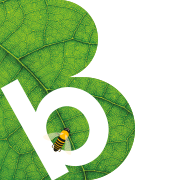
To help everyone understand just how amazing breastfeding is in World Breastfeeding Week, why not test your knowledge on the subject?
Question one – is the breast an organ?
Answer – Yes! Yet 86.6 per cent of people don’t know the lactating breast is actually classed as an organ.
A new survey by Medela has revealed an overwhelming lack of knowledge surrounding breastfeeding.
This World Breastfeeding Week, Medela has revealed the results from a recent social poll. The world’s leading breastfeeding brand has been chatting to its 50,000 strong online community, to research just how much knowledge its followers have around the science of breastfeeding.
Medela was delighted to discover that an overwhelming 92 per cent of participants knew that breast milk contained millions of live cells, however the same survey did reveal a lack of knowledge as to the specific and complex make-up of this unique, liquid gold.
Read our useful feature – Breastfeeding: Keep Feeding Your Baby For Longer.
Question two – does breast milk contain stem cells?
Answer – yes! They’re not just found in umbilical cord blood but Ialso in your milk. The intricate combination provides a truly unmatched support for baby.
Question three – is breast milk antibacterial?
Answer – yes! Additionally, more than a third of Medela’s online community was unaware that breast milk even has properties that can kill cancer cells.
Medela’s Lactation Consultant, Sioned Hilton, is passionate about informing mothers and mums-to-be on key facts about breastfeeding. She says: “There are many amazing benefits to breastfeeding that we should be celebrating and sharing as a nation. It is fantastic to see there is clearly an awareness about the fact that breastmilk is bursting with goodness, however it’s the complex properties within the millions of cells that we need to keep educating on.”
She continues: “This World Breastfeeding Week, we want to share the science and wonder of breast milk with families so they can be well informed when taking their first steps into parenthood’.
